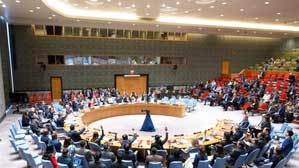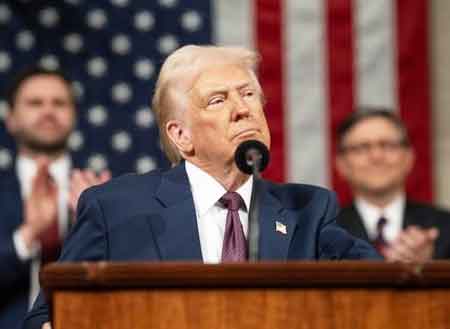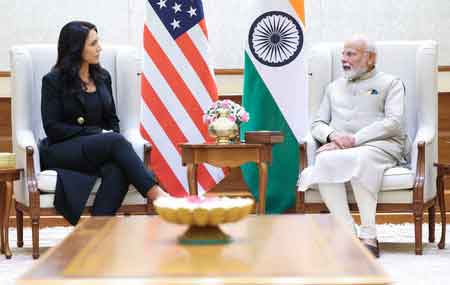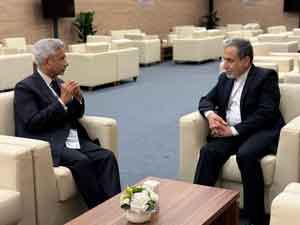Pakistan joins the UN Security Council on Wednesday subtly changing the balance in the world organisation's highest decision-making body and getting a virtual veto power over sanctioning terrorists it harbours.
Elected in June as a non-permanent member, it will replace Japan for a two-year term on one of the two seats for Asia Pacific countries in the Council.
Now Islamabad will not have to rely on Beijing to protect its terrorists like the mastermind of the 26/11 Mumbai attacks, Sajid Mir, at the Islamic State and Al-Qaeda Sanctions Committee, which designates individuals and groups associated with those two organisations as terrorists and imposes sanctions.
Although only permanent members have a veto over decisions of the Council, non-permanent members have a virtual veto in the sanctions committees for terrorism because they act through consensus under accepted norms.
The virtual veto given by the consensus procedure has been denounced, with New Zealand, a former head of the Islamic State-al-Qaeda sanctions panel calling it "the single biggest inhibitor to Committee effectiveness".
India has described the working of the sanctions committees as "subterranean" based on "obscure practices" without legal basis and called for transparency so that the rationale for decisions and how they are made is revealed.
Pakistan also gets a soapbox at the Council to amplify its campaign on Kashmir, an issue it routinely brings up regardless of the subject under discussion, launching virulent attacks on India.
However, this will be more of a continuing publicity stunt because it has been a voice in the wilderness unable to get any other country to join in despite trying to link Kashmir to the Palestine problem.
When Pakistan takes the presidency of the Council in July, it can convene at least two of what are called Signature Events on topics of its choice with high-level participation, both its own and invitees.
Even if it doesn't directly make it an "anti-India" show, it can take a topic that it can manipulate for propaganda on India and Kashmir.
With Japan retiring, there is a subtle change in the balance at the polarised Council where a triumvirate of China, Russia and Pakistan will emerge on many issues.
The other Asian member is South Korea, which like Japan, is pro-Western.
In the General Assembly, Pakistan has tracked China's voting on many issues, especially Ukraine when it joined Beijing in voting on a resolution naming Russia as the aggressor, while generally abstaining.
On Palestine, Pakistan has been a vociferous supporter of its cause and can be expected to raise the decibel in the Council, where it can go head-to-head with the US, which will redouble its backing for Israel under President-elect Donald Trump who has said hardliner Elise Stefanik will be his nominee to be the permanent representative.
Islamabad straddles a dichotomy on terrorism -- while backing or deploying terrorists against India, it denounces terrorism directed against it by groups like the Tehreek-e-Taliban Pakistan (TTP) that it says are based in Afghanistan.
It can be expected to denounce what it describes as Afghanistan's role in terrorism and try to get groups it says target it sanctioned.
The Asia Pacific group rotates its nominees for the Council, which are selected through consensus.
The group's 53 members range from tiny Nauru in the east to Cyprus at the edge of Europe on the West.
After heavy canvassing, Islamabad got the backing of about 20 countries as diverse as China, Saudi Arabia, Iran, Malaysia, the United Arab Emirates, Lebanon and Singapore and the group endorsed it in 2023.
Pakistan received 182 votes in the 193-member General Assembly for its eighth turn on the Council.








Tripura's unemployment ratio less than national average, claims CM Saha
Tripura Chief Minister Manik Saha said on Sunday that the state's unemployment percentage is less than the national average and the government is trying hard to further improve it.
25 people held or quizzed by police in 3 NE states for 'seditious' comments on Pahalgam terror attack
At least 25 persons were arrested or questioned by the police in three northeastern states - Assam, Tripura and Meghalaya -- for making controversial comments on social media after the Pahalgam terror attack, which left 26 dead, officials said on Sunday.
Four held in Tripura for social media posts relating to Pahalgam terror attack
Police arrested four people including two retired teachers in the past 24 hours from Tripura’s three districts for making controversial posts on social media relating to the Pahalgam terror attack, officials said on Saturday.
Indian Army responds firmly to ceasefire violations by Pakistani troops along LoC
In the wake of the recent terrorist attack in Pahalgam, Pakistan has resorted to unprovoked ceasefire violations along the Line of Control (LoC). Over the past two days, Pakistani military posts have been targeting Indian positions with small-arms fire. The Indian Army has given a strong and appropriate response to these provocations, official sources said.
US religious freedom body finds conditions for Pakistan minorities 'worsening', urges strong action
Finding "a worsening religious and political climate of fear, intolerance, and violence" for minorities in Pakistan, the US Commission on International Religious Freedom (USCIRF) has asked President Donald Trump's administration to take strong measures against the Islamic Republic.
Residences of LeT commanders, Pahalgam attack suspects demolished across Kashmir
Security forces have intensified their crackdown on Lashkar-e-Taiba (LeT) operatives and suspects linked to the deadly Pahalgam terror attack that claimed 26 lives on April 22.
India, Pakistan will 'get it figured out,' says Trump on border tensions
US President Donald Trump refused to be drawn into India-Pakistan border tensions in the aftermath of the Pahalgam terrorist attack, stating that the two countries will "get it figured out one way or the other."
CM stresses scientific drain construction to combat flood
Chief Minister Prof. Dr. Manik Saha today emphasized the need to construct drains in a scientific manner to quickly drain the water accumulated in the city during heavy rains.